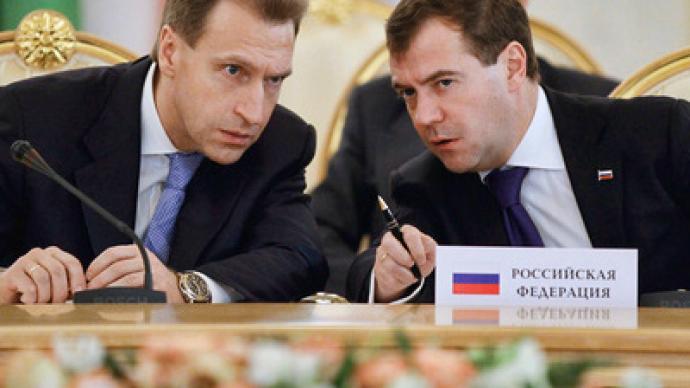Russia’s deputy prime minister urged to head liberal party

Despite media reports that First Deputy Prime Minister Igor Shuvalov may head the Right Cause party, its leadership has said that consultations are still under way.
“It is premature to speak about any result yet,” the party’s co-chairman Georgy Bovt said on Friday. Along with Shuvalov, other people are being considered for the post of party leader as well. The Right Cause members believe their chance of success during the parliamentary elections in December will be boosted if a well-known politician or public figure heads the party.Igor Yurgens, the head of the Institute of Contemporary Development (INSOR) said last week that a person like Shuvalov, or Finance Minister Aleksey Kudrin, or Presidential Aide Arkady Dvorkovich could help the party win the electorate’s support. But, he added, it was his personal opinion.Consultations are being held with various people, including some of those named by Yurgens, Bovt told Interfax. “As for the media reports that Shuvalov has agreed to lead our party, very often such forecasts only hurt the cause,” he noted.Shuvalov “has agreed in principle” to head the Right Cause, the Vedomosti newspaper wrote on Friday, citing its sources. It would be good “not only for the party, but for the country as well,” said Boris Nadezhdin, a member of the party’s political council. However, the final decision has not been taken yet. The party is expected to announce structure changes in the near future. In accordance with the Right Cause’s charter, the leader could be elected at the party’s congress. Now the party is headed by three co-chairmen – Bovt, Leonid Gozman and Boris Titov. During the March 13 elections, Right Cause managed to enter the parliament in the Republic of Dagestan – its biggest success so far. Shuvalov had said earlier that he did not consider himself a conservative or liberal. He is ready to defend economic freedoms, minimal tax burden, and private property based on a strict observance of the law. Speaking at a public conference last week, the deputy prime minister supported peaceful transformation of Russian society “without any upheavals,” and cited the current events in the Middle East and North Africa as a negative example. Sharp changes of political course may badly affect institutions in Russia, and will hinder modernization, Shuvalov warned.














